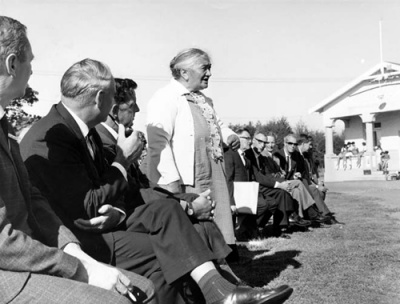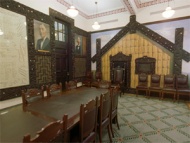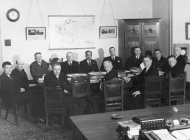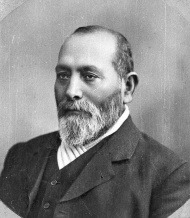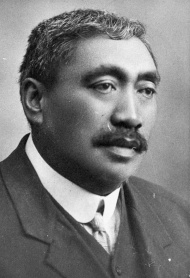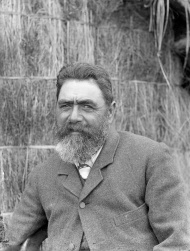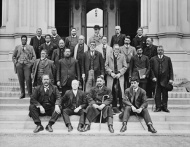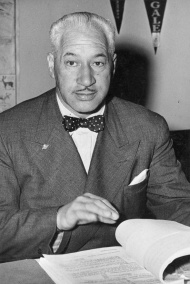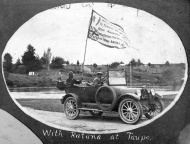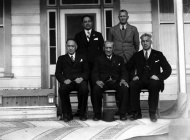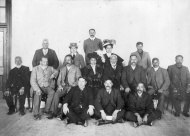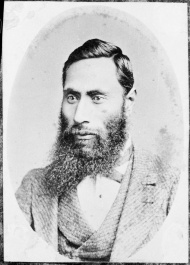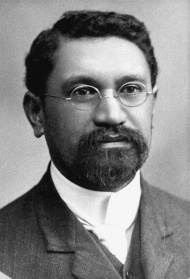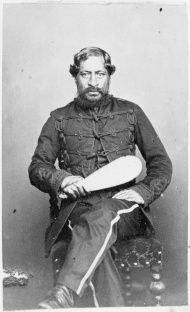Events In History
-
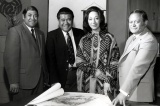 8 December 1972Whetu Tirikātene-Sullivan becomes first Māori woman Cabinet minister
8 December 1972Whetu Tirikātene-Sullivan becomes first Māori woman Cabinet ministerWhetu Tirikātene-Sullivan became the first female Māori Cabinet minister when she was sworn in as Minister of Tourism in Norman Kirk’s third Labour government Read more...
-
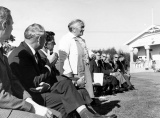 29 November 1949First female Māori MP elected
29 November 1949First female Māori MP electedIriaka Rātana was elected as New Zealand’s first female Māori MP. Read more...
-
 15 April 1868First Māori MPs elected to Parliament
15 April 1868First Māori MPs elected to ParliamentThe Maori Representation Act 1867 established four Māori seats in the House of Representatives, initially for a period of five years. The act gave the vote to all Māori males aged 21 and over. Read more...
Articles
Parliament's people
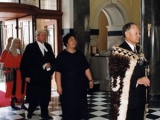
Today there are usually between 120 and 123 MPs in New Zealand's Parliament, which is a far cry from the 37 who met for the first time in Auckland in 1854.
-
Page 3 – Māori MPs
Leaders of Māori society have represented their people in the House, including Māui Pōmare, James Carroll, Matiu Rata and, most famously, Apirana Ngata.
Māori and the vote

Between April and June 1868 the first four Māori MPs were elected to New Zealand's Parliament. Despite ongoing debate, the Māori seats remain a distinctive feature of this country's electoral landscape almost 150 years later.
-
Page 2 – Setting up the Māori seats
Early Māori representation in New Zealand elections.
-
Page 3 – Change in the 20th century
The fall and rise of Māori seats in the 20th century.
Māori War Effort Organisation
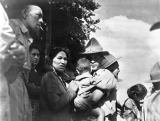
The Maori War Effort Organisation was formed during the Second World War to assist with recruitment for the forces and war-related service.
-
Page 3 – Difficult times
When the Maori War Effort Organisation was established, the government had estimated that it would have a six-month life at a cost of £7,000. In 1943 Paikea asked that
-
Page 4 – An uneasy compromise
Minister of Native Affairs Rex Mason, wanting to curb the Maori War Effort Organisation's expansion or entrenchment, in 1944 initiated moves to introduce to the Native
Parliament Buildings
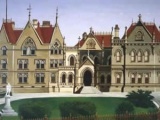
Parliament buildings have been modified, destroyed by fire, half-built and restored; the parliamentary places and spaces have formed an important part of New Zealand's history.
- Page 4 - Current buildingsParliament Buildings are made up of the Edwardian neo-classical Parliament House and the Beehive – its name inspired by a brand of
Parliament's culture and traditions
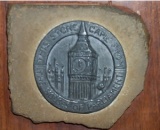
Explore Parliament's rich history and its colourful culture and traditions.
- Page 6 - Parliament in te reoTe reo (the Māori language) came into Parliament with the first Māori MPs, elected in
The road to MMP

In 1993 New Zealanders voted to replace their traditional first past the post (FPP) voting system with mixed member proportional representation (MMP). Eighteen years on, as Kiwis voted in a new electoral referendum, we explore how and why that dramatic reform came about.
- Page 5 - 1996 and beyond - the road to MMPThe three years following the 1993 referendum, before the first MMP election in 1996, were ones of transition and
Biographies
-
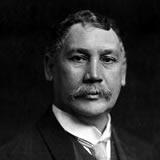 Carroll, James
Carroll, James
Cabinet Minister and twice acting Prime Minister, James Carroll’s main aim in Parliament was to empower Maori and secure a role for them in the economic life of the country.
Read more... -
 Kaihau, Hēnare
Kaihau, Hēnare
Hēnare Kaihau become deeply interested in Māori politics, and strongly supported the King movement, becoming a principal adviser to Mahuta, the third Māori King.
Read more... -
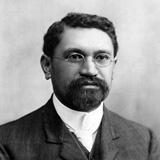 Ngāpua, Hōne Heke
Ngāpua, Hōne Heke
Hōne Heke Ngāpua was elected to Parliament in 1893 and represented the people of Northern Māori almost continuously until his death in 1909.
Read more... -
 Parata, Wiremu Te Kākākura
Parata, Wiremu Te Kākākura
Elected to Parliament as the member for Western Māori in 1871, Wiremu Parata, took part in several high-profile court claims over Māori land.
Read more... -
 Pere, Wiremu
Pere, Wiremu
Wi Pere was a strong critic of the government's Maori land policies during his 15 years as a Member of Parliament for Eastern Maori
Read more... -
 Buck, Peter Henry
Buck, Peter Henry
Biography of doctor, politician and anthropologist Peter Buck (Te Rangi Hīroa)
Read more... -
 Paikea, Paraire Karaka
Paikea, Paraire Karaka
Te Uri-o-Hau Methodist minister and Rātana leader, Paraire Paikea, played a leading role in forging the historic alliance between the Rātana movement and the Labour Party. He was minister in charge of the Māori war effort during the Second World War.
Read more... -
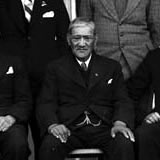 Rātana, Tahupōtiki Wiremu
Rātana, Tahupōtiki Wiremu
Tahupōtiki Wiremu Rātana, of Ngāti Apa and Ngā Rauru, founded the Rātana Church, which remains a major religious and political force today.
Read more... -
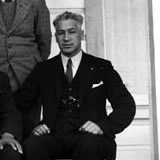 Tirikātene, Eruera Tihema Te Aika
Tirikātene, Eruera Tihema Te Aika
Ngāi Tahu politician Eruera Tirikātene became the first Member of Parliament to represent the Rātana religious and political movement in 1932.
Read more... -
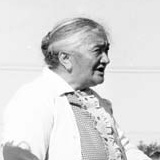 Rātana, Iriaka Matiu
Rātana, Iriaka Matiu
The first Māori woman to be elected to Parliament, Iriaka Matiu Rātana was a passionate advocate for the welfare of her people.
Read more...
Related keywords
- maori
- parliament buildings
- carving
- panorama
- iriaka ratana
- suffrage campaign
- labour party
- MPs
- women in politics
- suffrage 125
- maori in war
- maori war effort
- te puea herangi
- famous firsts
- parliament
- maori language
- te reo māori
- apirana ngata
- WW2
- architecture
- beehive
- maori leaders
- henare kaihau
- ngati te ata
- kingitanga
- wiremu pere
- ngati toa
- te ati awa
- wiremu parata
- tahupotiki wiremu ratana
- ngai tahu
- eruera tirikatene
- 1920s
- religion
- te uri-o-hau
- paraire paikea
- henare balneavis
- heni materoa carroll
- hori taiaroa
- te aitanga-a-mahaki
- te whanau a kai
- rongowhakaata
- treaty of waitangi
- ngapuhi
- land claims
- kotahitanga
- hone heke ngapua
- neke russell
- mete kingi paetahi
- tareha te moanaui
- john patterson
- peter buck
- ngati mutunga
- doctors
- health
- māori health
- voting
- elections
- MMP
- ngati kahungunu
- james carroll
- maori land
- liberal party
- transport
- bellamys
- ngati apa
- nga rauru
- maui pomare
- matiu rata
-
Main image: Iriaka Matiu Rātana
Labour MP, Iriaka Rātana speaking to supporters of the Rātana political movement on Manukorihi marae, Waitara.

